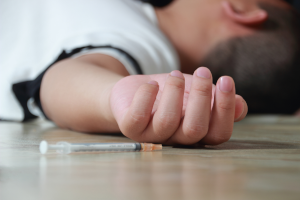Overdose Deaths Are on the Rise, Which Means Encouraging Your Loved One to Seek Addiction Treatment Is More Important Than Ever
The coronavirus pandemic changed many aspects of our daily routine—and exacerbated the difficulties already faced by people struggling with substance use disorders. Recently released statistics show that overdose deaths rose dramatically in 2020. Consider the following:
- From October 2019 to October 2020, overdose deaths from drugs of all types increased by 30% across the United States. More than half the overdoses came from synthetic opiates, but there was a 46% increase in deaths from other psychostimulants such as methamphetamine and a 38% increase in deaths from cocaine.
- Allegheny County overdose deaths increased 20% in 2020. There were 689 overdose deaths in 2020—representing an increase of 125 from 2019. The three zip codes with the most overdose deaths in the county were 15210, 15212, and 15136.
- There were 1,214 people who died from drug overdoses in Philadelphia in 2020—with 81% of those deaths involving a fentanyl overdose. This represents the second-highest number of overdose deaths recorded in the city and is just under the 1,217 deaths recorded in 2017.
Recognizing a Potential Drug Overdose
Any suspected drug overdose is a medical emergency. The signs of a drug overdose vary depending on the specific substances that have been ingested. However, if you notice any of the following warning signs, there is a strong possibility that an overdose may have occurred:
- Trouble breathing
- Drowsiness or loss of consciousness
- Nausea and vomiting
- Poor coordination and trouble walking
- Enlarged pupils
- Tremors or convulsions
- Hallucinations or delusions
- Agitation, aggression, or violent behavior
Whenever you think someone has overdosed, call 911 for immediate medical assistance. Provide as much information as you can about the symptoms you’ve noticed and what you think the person might have taken. Do not leave the person alone until help arrives. Try to move them onto their side to prevent choking. If there is no pulse, you may be asked to perform chest compressions.
If you have access to naloxone and an opioid overdose is suspected, this drug can temporarily reverse the effects to allow the individual time to seek the appropriate medical care. In Pennsylvania, many pharmacies offer naloxone without a prescription to encourage people with substance use disorders and their loved ones to obtain the medication as a precautionary measure. While naloxone is not a substitute for addiction treatment, there’s no doubt that it saves lives.
Encouraging Your Loved One to Seek Addiction Treatment
If your loved one is struggling with addiction, it’s vital that you continue to urge them to seek treatment. Even if they haven’t been receptive to your efforts before, don’t give up. It’s not uncommon for it to take several tries before you successfully persuade someone with a substance use disorder to recognize that they need help.
In the earlier stages of an addiction, an honest and non-judgmental discussion about the behaviors you’ve witnessed and why you’re concerned might be enough to convince your loved one to seek help. However, if your friend or family member has been abusing drugs or alcohol for quite some time, you may need to organize a formal intervention.
An intervention is a structured meeting where friends and family members get together to collectively share their concerns and present the individual with a treatment plan. If the individual with an addiction refuses to get help, they follow through with consequences such as asking the person to move out of the shared home, limiting contact with underage children, or no longer providing financial support. See our How to Plan an Intervention post for details.
We’re Here to Help
St. Joseph Institute for Addiction provides evidence-based care for men and women struggling with substance use disorders. Our Pennsylvania residential addiction treatment center provides intensive counseling and holistic support services designed to help a person build the skills they need for a lasting recovery. Review our FAQs to learn more, then contact our admissions representatives to discuss how we can help your loved one get the support they need to begin their recovery journey.
To learn more about St. Joseph Institute addiction treatment center in Pennsylvania, and our programs, please contact us at (814) 228-8881.

